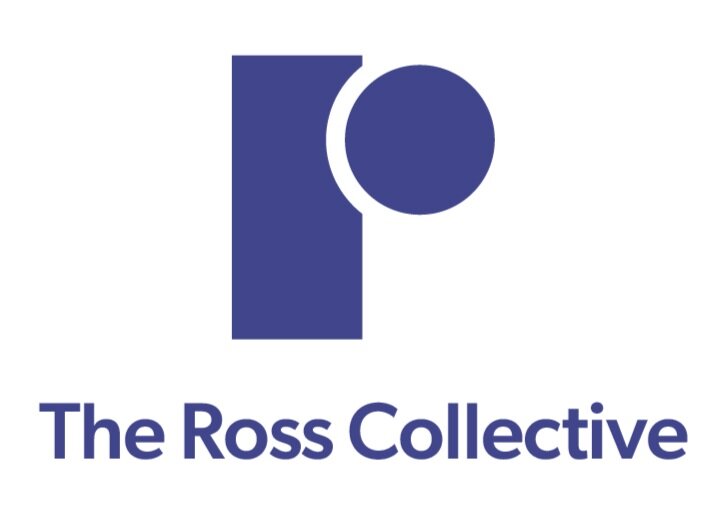
Open Questions: The Ross Collective Blog
Sharing insights and stories on nonprofit strategy, racial equity and leadership

Is there an elephant in your boardroom?
I love leading board retreats. It’s one of my favorite things to do because groups dig into deep issues. Let me give you an example:
Halfway through a recent board retreat for a social service organization, important information surfaced.
Board members mentioned that the secretary had been inconsistent in her performance. She was not sharing meeting minutes in a timely manner. This hurt board members’ ability to govern the organization: Board members weren’t prepared to vote on issues and wasted precious time catching up.
How five minutes invested upfront leads to hours of productivity
Meeting agreements help participants to better listen to and learn from one another

What should your nonprofit resolve to do in 2018?
I recently facilitated several conversations with staff and board members from Bay Area nonprofit organization about the results of the impact capacity assessment tool (iCAT). The iCAT measures the health of a nonprofit in six core areas: managing, planning, learning, leading, overseeing and generating. Staff and board members take an online survey that asks about perceptions of the organization in these areas. The iCAT converts this data into a report on organizational strengths and weaknesses and recommendations effective next steps.
Why I’m NOT resolving to read more books this year
From all sides, we’re urged to set reading goals for 2018 and read more books.
Each time I hear this message, I think, “No!”
I read many books yearly. I have my chaotic, non-linear process down to a science: Friends or colleagues tell me about a book or it is mentioned in a newspaper article or blog post. I request the book at the library, read it, add it to my goodreads collection and pull the next one off my nightstand.

What to do before writing a grant proposal
Recently I presented a workshop on grant proposal writing at the Dress for Success Affiliate Leadership Conference in San Francisco.
Dress for Success (DFS) has a reputation as a place to pass on professional clothing. Their work goes beyond giving professional clothing a second life: DFS is an international organization that empowers women to achieve economic independence by providing a network of support, professional attire and the development tools to help women thrive in work and in life.

Following the recipe
A fragrant chocolate odor emanated from our kitchen. Finally, I could relax. It had been a sprint to prepare our regular dinner in addition to the chocolate cake for my husband’s birthday. Our young daughters helped me to assemble the cake. I loved having them as sous chefs, although I could get distracted managing them and following a recipe.
The cake would take an hour to bake. Thirty minutes in, I checked on the cake. I opened the oven door, expecting to find a slowly rising chocolate mass. Instead, something dark was bubbling. It was not a solid, it was a liquid. What was going on?

Nonprofits: Speak Up Right Now
Two weeks ago marked a moment of stunning political upset in American politics. Many of us are moving through the stages of grief: sadness, shock, anger and denial.
As I have processed my own emotions with friends, colleagues, and community members, I’ve thought a lot of about how we should be reacting, as individuals. And how nonprofit organizations should react.

How valuable are online, asynchronous courses? Four ideas to consider
We are at moment of learning overload. Many sites offer free or fairly low cost learning opportunities. How do we evaluate the value of these opportunities against our own time and money, which is our most valuable resource? Based on my knowledge of learning processes, here are some considerations.

Four Ways to Transition Back from Vacation
Our family just returned from nine relaxing and energizing days away. Our older daughter was happy to see her toys and stuffed animals again, but she kept saying, “something feels funny. I don’t know what it is, but something feels funny.” This morning, our younger daughter stood at the front door and said, “I don’t want to go to camp.” And as I fired up my computer, something did feel funny.
This time of year especially, we hear a lot of about the benefits of taking a vacation. Clearing our minds with a change of scene makes us more productive when we return to work. But we hear less about moving through those transitional days back into our routine.

What blocks us—as people and organizations?
This month, I attended a two day workshop on Strategic Planning Facilitation using Technology of Participation (TOP) methods. TOP facilitation methods are inclusive, surface thinking, draw out the wisdom of the group and build collective engagement and buy-in. In using TOP facilitation methods to lead groups over the past few months, I have honestly been little bit awed by their effectiveness: Group members participate, they see that their opinions and perspectives matter, and the group comes together in inspiring and powerful ways that move work forward.
